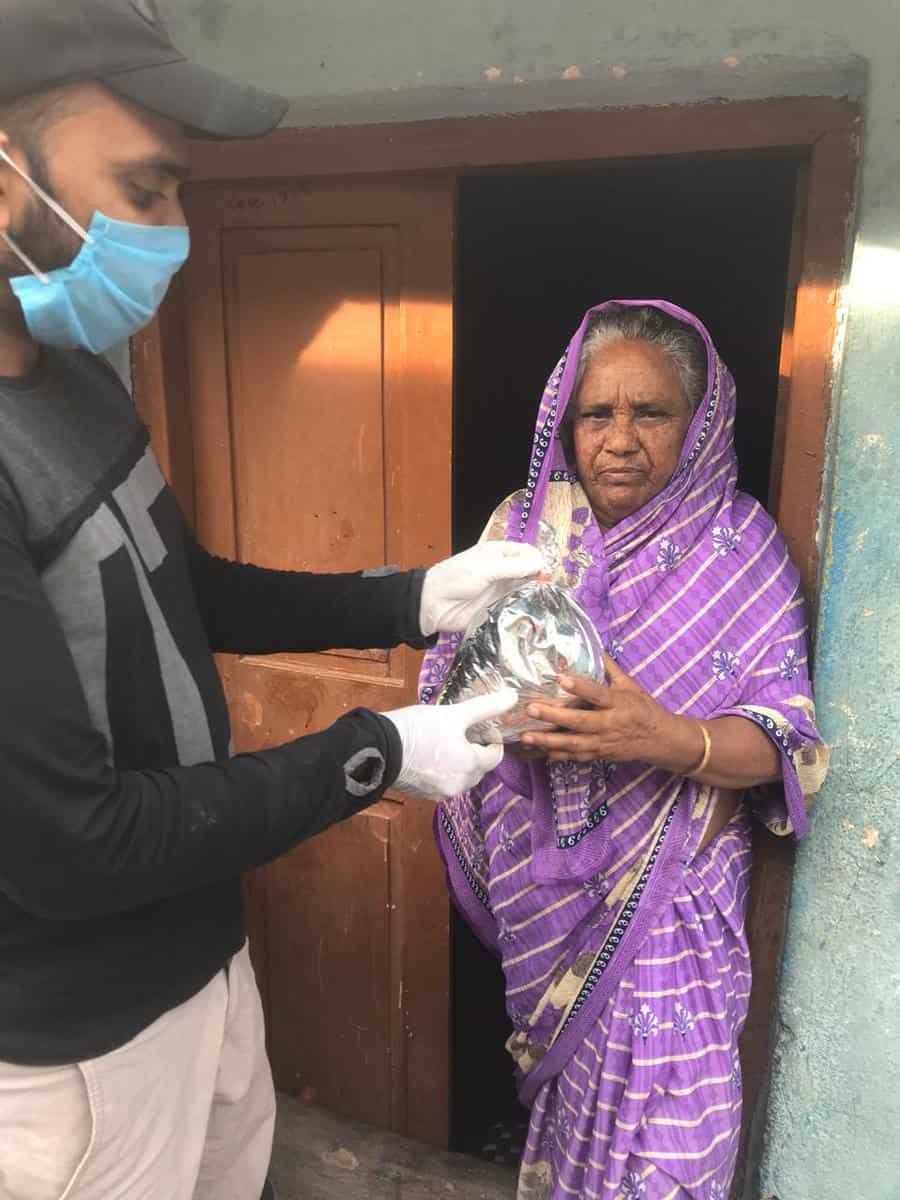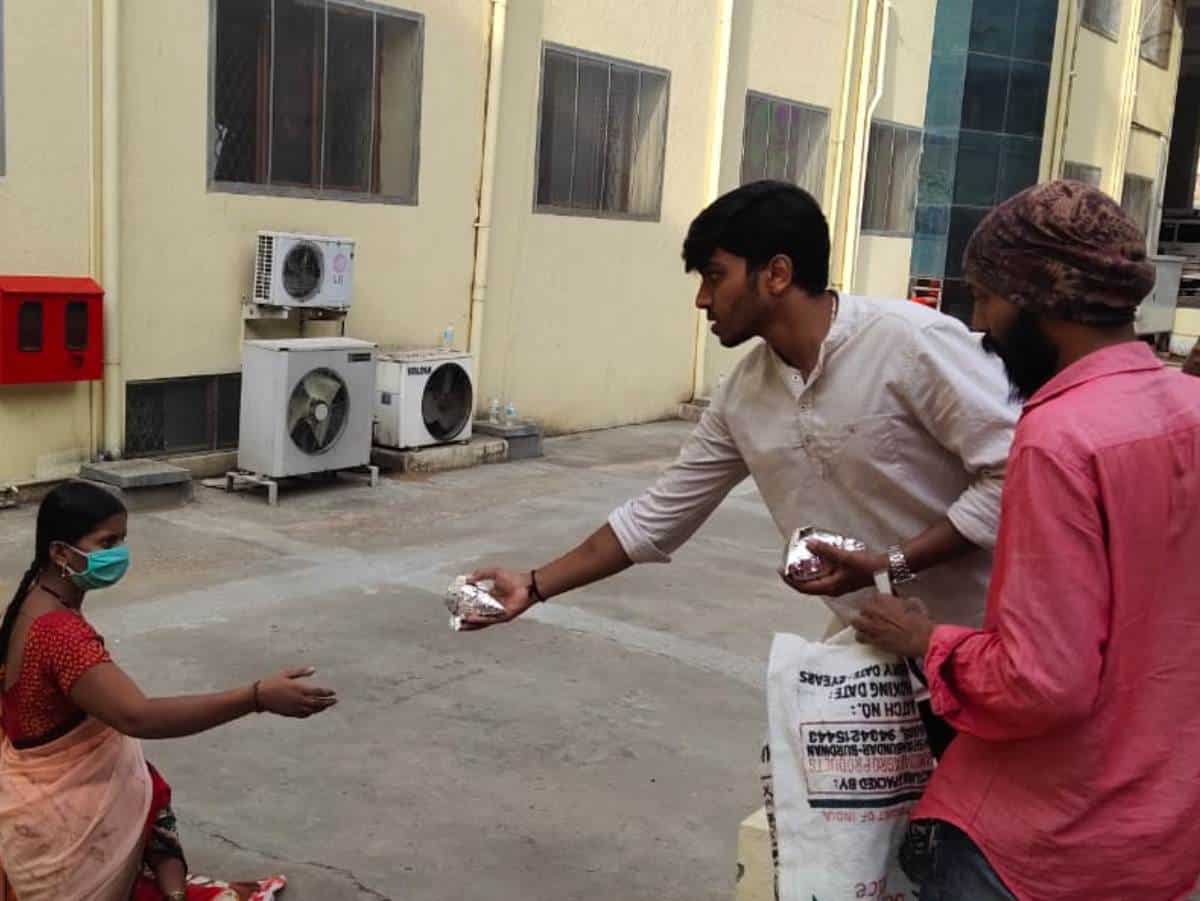M. A. Siraj
Bengaluru: Nearly 20 NGOs run by Muslims in Bengaluru have moved into action to help reach the stranded workers and daily wage-earners with ration kits and food packets during the 21-day lockdown in the city. The work under the banner of Mercy Mission was though started on March 5 to tackle the medical emergency, has taken up the mission of reaching people with ration kits and packed food since the nation underwent Janata Curfew on March 22 and thereafter the extended 21-day Lockdown.
Workers from other states
Bengaluru has attracted vast number of workers from states like Bihar, Uttar Pradesh, Jharkhand, Odisha, Assam, West Bengal and other north-eastern states during the last 25 years since it witnessed an economic boom. Outbreak of Covid-19 earlier this month made it abundantly clear that a large number of people may fall victim, given the nature of their work. The 20 NGOs huddled together and formed Mercy Mission and launched a programme to primarily tackle the medical emergency. But with each passing day, it became apparent that the Mission will need to address the wider problem of starvation and loss of livelihood and reach out to the workers getting stranded in the wake of suspension of train and bus services in keeping with the directive of the Union Government to apply full brakes on mass activity across all sectors.
The NGOs that came under the Mercy Mission umbrella were The Lifeline Foundation, Project Smile, Humane Touch, MFIRD, HWA Charitable Foundation, Palm Charitable Trust, Centre for Islamic Studies CIS), The United Foundation, 365 Smiles, Jamaat e Islami Hind, Bangalore Islamic Foundation Trust (BIFT), Humanitarian Relief Society, Hum Bharat ke Log and a few others. A WhatsApp group and a telephone Helpline were created immediately and word went round among people to identify the people in distress.
The City with a population of around 12 million has attracted masons from Rajasthan; carpenters and mistries from Bihar and UP; people from North Eastern States who generally work as security personnel and waiters in restaurants; construction workers from West Bengal, Madhya Pradesh and Odisha. The daily wage-earners among them generally live in slums, shanties and lower middle class neighbourhoods. The gradual suspension of trains since March 20 came as a bolt from the blue as a long layoff stared into their eyes. Generally working as workers without any signed contract, they were either stranded on the stations or had to return to their humble abodes. Contractors had washed their hands off with construction suspended, warehouses and godowns rolling down their shutters and hotels and restaurants winding up the dining section. Large number of workers were seen stranded on two important railway terminals, namely KSR Bengaluru and Yeshwanthpur Railway station.
Food packets to stranded workers
Initially some organizations handed out food packets to stranded workers keen to return to their native homes. But it was soon realized that the problems was larger and unless addressed on larger scale, the city would see rise in crimes.
While the Mission was conceived by Syed Habeeb, a personality trainer, known for his Ramazan-eve social work, it was led by Dr. Taha Matheen of Jamaat e Islami. A clutch of doctors urged work on war footing as the spreading tentacles of the virus threatened to knock off the civic life in a major way. They were joined by nearly a hundred volunteers of various NGOs with a resolve to reach the needy with food and medicine. They were unanimous that the help will be offered regardless of the religion and community. Hum Bharat ke Log, an NGO run by non-Muslims, too joined the umbrella to extend the helping hand.
Over the week, the telephones have not stopped ringing. Social workers across the city have been sending out alerts with regard to stranded workers, starving daily wagers, construction workers sitting around inoperative cranes and JCBs (backhoe excavators). The Mission set up a community kitchen in D. J. Halli, the largest slum in the State and began doling out standard food packets to misery-stricken daily labourers. It proposes to start three more kitchens in three more corners of the city. Simultaneously, a few centres were set up to store provisions and send out ration kits, each costing Rs. 1,500 to the families in distress due to loss of livelihood or total closure of grocery stores. Nearly a hundred volunteers stir out with kits to reach the needy as soon as the messages are received over the hotlines. However, in order to verify the genuinely needy, the Mission has been depending upon a string of social workers who have been active during month of Ramazan over several years. A score of charitable trusts reaching out to needy students with scholarships over the last three decades too have chipped in.
Activist Ameen e Mudassir says, the Mission has reached out to the needy with nearly 3,000 ration kits and a similar number of food packets over the last week. The City Police has appreciated the gesture and issued passes for scooter-riding carriers of the provisions. Several restaurants too have begun offering food packets to the Mission for free distribution in tenements identified in areas of concern. Several philanthropists in the City too have risen to the call for help and have begun generously donating for the cause.



